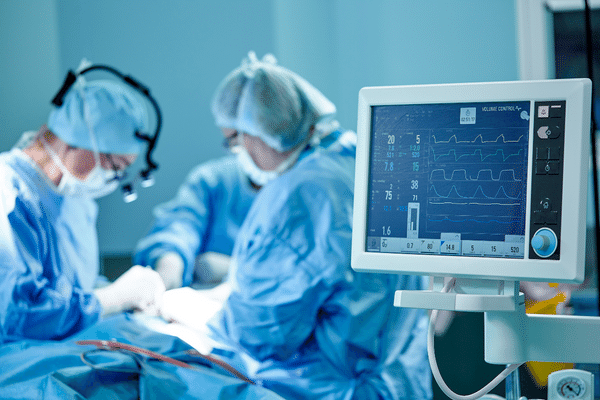|
|
Last Modified on Mar 05, 2025
Surgery is typically an effort to feel better, or at least after recovery. Why else would you undergo a procedure that causes more pain (at first) and costs you so much of your hard-earned money? Unfortunately, it doesn’t always go as planned. If you or a loved one has had surgery and feel things aren’t quite right, it’s not something to ignore. There are a few things that could be warning signs after surgery that you shouldn’t overlook.
Sure, we’ve all heard the horror stories of waking up during surgery, finding out that something was left inside during surgery, being misdiagnosed, or more. But that doesn’t really happen, right? At least to everyday people and with procedures like you’re having. WRONG. In 2016 Johns Hopkins patient safety experts figured that more than 250,000 deaths each year are a result of medical error, making it the third highest cause of death in the U.S.! Wow! Medical errors are happening, and they are happening in the hospitals and procedure centers near you.
Warning Signs After Surgery You Should Watch Out for
1 – Pain that Doesn’t Get Better – While surgery does, of course, bring extra pain immediately afterward, and during recovery, pain that continues and doesn’t seem to get any better or gets worse as time goes on should be addressed. Also, pain that can’t be controlled, even with the use of prescribed pain meds, needs to be discussed with your healthcare provider.
Have a plan in place to address such concerns if they are to arise after surgery. Who should you call? How long is too long to wait? Having the answers to these questions can alleviate anxiety and confusion about how you should act if problems arise. Waiting too long could be detrimental to your health.
2 – Vomiting or Diarrhea – It should be known that vomiting and/or diarrhea are often experienced by patients that undergo anesthesia. These symptoms should wear off within a couple of days after surgery. If they aren’t, you won’t be able to recover properly due to dehydration and more. Talk to your surgeon or another healthcare provider sooner than later if this is something you experience. Your body needs all the nutrients and hydration it can get to heal and get you on the road to recovery.
3 – Fevers – Fevers can be expected immediately after surgery, but if you experience a high fever (101 degrees or more) that stays around for more than a day after surgery, it could be a sign of infection or other issues. It’s important to know that fevers that aren’t getting better are there for a reason. Your body is letting you know there is a problem, and more severe issues could follow if attention isn’t given. So don’t ignore these warning signs after surgery.
4 – Redness or Discolored Fluid at the Surgical Site – Discharge that smells bad or is discolored should be reported to your surgeon. Redness (especially a dark red) that may or may not be seeping a yellow or green discharge or pus could be a sign that infection is present and needs to be treated by your surgeon A.S.A.P. Don’t let this go on for days before speaking to your healthcare provider. You want to get on top of this one fast!
5 – Severe Drop in Blood Pressure – Your body endures a lot during and after surgery. After surgery, it is possible for your body to go into shock and experience a quick drop in blood pressure. This situation can be caused by the loss of blood during surgery, possible infection, brain injury, and more. Call your doctor immediately and go to the hospital to get checked out. There could be something serious happening that your body is warning you about.
6 – Trouble Breathing – Anesthesia is something to be very grateful for when it comes to surgery. None of us want to be awake for our procedure, right? However, it does come with its risks. As you recover from surgery, pay special attention to your breathing. The doctors and nurses will be watching it as well. While your body recovers from the anesthesia, there could be some things that don’t come back quite as quickly as others. Your breathing should return to normal quickly, but if it doesn’t, talk to your doctor or nurse immediately for assistance.
Seeking Help If You Feel Something Went Wrong During Surgery
If you suspect something may have gone wrong during the surgery, talk to your doctor right away. If your doctor dismisses your concerns, make sure to speak to another provider and get a second opinion. You know better than anyone what your body should feel like and if things don’t feel right.
Sometimes if something goes wrong, your surgeon will talk to you about it and let you know what happened. Other times, they may not even know that an error occurred. Then there are always the surgeons that try to hide their mistakes and deny that anything went wrong. In these cases, especially, you must trust yourself and advocate for yourself so that you receive the care you deserve.
Your health is a top priority, and your surgery should get you on the road to feeling better. While there is a recovery process and timeline, consistent pain, vomiting or diarrhea, fevers, pus, and low blood pressure should not be ignored. Then after receiving the medical attention you need, contact the medical malpractice team at Gainsburgh, Benjamin, David, Meunier & Warshauer, L.L.C. We have worked hard to get our clients the compensation they deserve for the wrongdoing they have endured and will do the same for you.
Schedule a free consultation with one of the team members at Gainsburgh, Benjamin, David, Meunier & Warshauer, L.L.C. by calling (504) 522-2304 . Don’t wait to seek help for yourself if you are experiencing warning signs after surgery. We look forward to working with you to alleviate some of the stress and burden you have had to endure.





